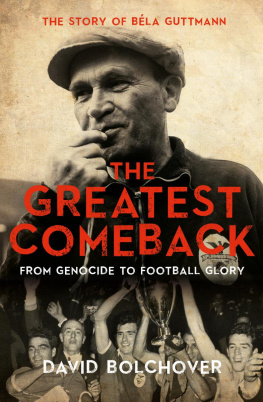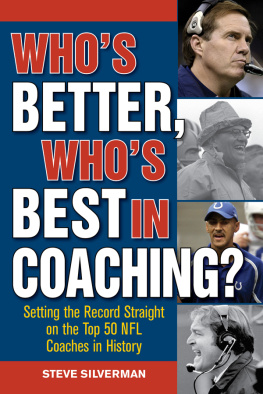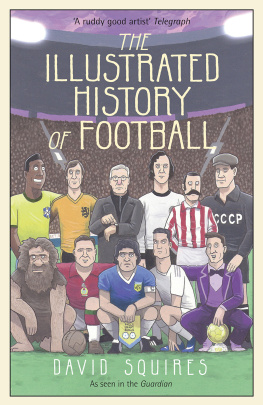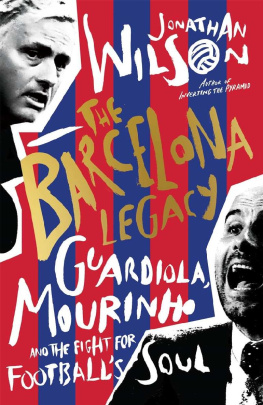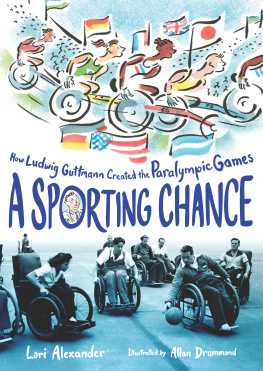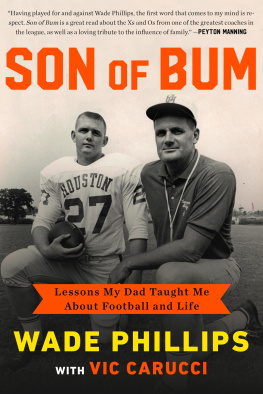A t the Prater stadium in Vienna on 23 May 1990, the illustrious Portuguese football team Benfica was due to take on Italian giants AC Milan in the European Cup Final. Shortly before the game, Benficas greatest ever former player, Eusbio, took a trip to the Jewish section of the citys Central Cemetery. There he prayed before the grave of the man who, three decades earlier, had plucked him from obscurity and propelled him to international stardom. Kneeling beside the tombstone, he beseeched his dead mentor to lift a famous curse.
In May 1962, Bla Guttmanns Benfica had beaten the great Real Madrid 53 in the Olympic stadium in Amsterdam to claim their second successive European Cup. Their final two goals were scored by Eusbio, the twenty-year-old phenomenon known as the Black Pearl.
But after the match, the clubs very realistic prospects of long-term European domination were thrown into disarray. The board of directors rejected Guttmanns continued demands for a pay rise, pointing to the absence of any such provision in his contract. As was his wont throughout his turbulent career, the deeply charismatic and innovative coach departed in fury. He is said to have told his erstwhile employers that they would not win another European trophy for one hundred years.
Eusbios supplication of 1990 came to nothing. Milan beat Benfica 10. Indeed, as of 2020, Benfica have appeared in eight European finals since 1962, and lost every single one an eventuality, based on an even chance of winning each, with a probability of 1 in 256, or 0.4 per cent.
Such is the curse of Bla Guttmann. His powerful presence looms as large in death as it did in life. His statue greets Benfica fans as they walk through gate 18 of the clubs magnificent Estdio da Luz in Lisbon. More than 500 years after the Easter weekend in which 3,000 Jews were massacred in that city in a prelude to the Portuguese Inquisition, one of their number stands tall once more. He proudly clutches the two European Cups that have eluded his thirty-two successors, a constant, mocking reminder to the Benfica faithful of what might have been if their stubborn and short-sighted directors had properly valued his managerial genius.
It would be hard to imagine a modern-day football club refusing to meet the seemingly reasonable demands of a coach who had presided over such glorious success. But Guttmann and Benfica both paid the price for his novelty, the ability he demonstrated throughout his career to smash tradition and then remould it.
While few now question the huge influence of the coach on team performance in football or other sports, the prevailing opinions of 1962 would have been very different. Despite the achievements of the likes of Herbert Chapman, who led Huddersfield Town and Arsenal to repeated success in England in the 1920s and 1930s, the now widespread cult of the coach was then still some way from being firmly established.
Bla Guttmann was the first of a kind, an international superstar football coach who eked every last drop of effort and tactical advantage from his teams, before Jos Mourinho or Pep Guardiola were even born. He was ahead of his time, says Antnio Simes, another of his Benfica stars, thrown on to the world stage by his mentor at the tender age of seventeen. Mourinho says the same things today that Guttmann did more than fifty years ago.
So when he gambled, Benfica sent him packing, labouring under the naive impression that there were plenty more where he came from.
To fathom the legend that is Bla Guttmann, we must first pay close attention to the time and place which this remarkable man came from: the immensely vibrant and creative society of Jewish central and eastern Europe as it entered its very final phase before almost total annihilation. In the football sphere, just as in so many others, the impact of this Jewish population was extraordinarily disproportionate to its size.
Guttmann was born in the last year of the nineteenth century, in the Hungarian capital Budapest, to Abrhm and Eszter Guttmann. His first notable footballing success was at MTK Budapest, a club founded by Jewish businessmen and subsequently associated strongly with its predominantly Jewish players and supporters. In a starting eleven that included six Jews, he then scored on his debut for the Hungarian national team against Germany in 1921.
Everything appeared rosy for Guttmann, but his success on the pitch was to be clouded by political events off it. Unsettled by the murder of thousands of Jews in the Hungarian White Terror, he decamped to the all-Jewish and Zionist football club Hakoah Vienna. It was to be one of twenty-one moves across international borders in the playing and coaching career of footballs Wandering Jew, the founding father of a now globalised game.
It was at Hakoah that Guttmann reached the pinnacle of his playing career, winning the Austrian championship of 1925, the first fully professional league title race in mainland Europe. But Guttmanns experience during his five years at the club was in no way confined to on-field glory.
Hakoah (the Hebrew word for the strength or the power) was much more than just a successful team; it was a potent symbol of Jewish national pride, both in Vienna and throughout the entire Jewish world. Founded by a group of Austrian Zionists, the clubs espousal of Jewish assertiveness and feisty self-reliance, and its rejection of timid assimilation into Gentile society, chimed with a large section of Jewish youth who sought a vestige of dignity amid a constant torrent of abuse, intimidation and violence. A people who get used to being insulted are lost, said Robert Stricker, one of Hakoahs founders.
Despite the intense loathing they attracted on and off the pitch, Hakoah sought no accommodation, standing toe to toe with hostile opponents in an often febrile and physically intimidating atmosphere. Embodying the spirit of muscular Judaism, a phrase conceived by the Zionist activist Max Nordau, the players sported a large Star of David on their shirts in collective defiance of a world riddled with hatred of Jews since time immemorial.
Guttmann and his teammates travelled the world, enjoying sustained success on the pitch, and fted by mass crowds of adoring Jewish fans wherever they went. In Poland, they provoked civil unrest after defeating the countrys finest. In the United States, they attracted one quarter of a million spectators to their tour games in 1926, at one game breaking a soccer attendance record that had stood for half a century. West Ham United became the first English team to be defeated on home soil, dismantled 50 in their own stadium a few months after reaching the FA Cup Final. The then mighty Slavia Prague were beaten at home for the first time in more than a decade.
Viewed in retrospect, these glory years at Hakoah were to be the last hurrah, one of the very final sources of joy for a people that was soon to be ravaged in the inferno that accounted for two of every three European Jews. At least thirty-seven members of the wider Hakoah sports club were murdered, including seven of its footballers. With Guttmann himself serving as its last coach before the Nazis marched into Vienna, the club was disbanded, the records of its achievements expunged from the history books.
Up to 600,000 of Guttmanns fellow Hungarian Jews, including his sister and elderly father, were also murdered. In a 54-day period in the spring and early summer of 1944 that plumbed the depths of hell, fully 435,000 of them were transported to extermination camps, the overwhelming majority to Auschwitz, at a rate of more than 8,000 a day with one Jew put to death every eleven seconds.
The voracious Nazi machine eliminated at least eighteen Bla Guttmanns and nineteen Bla Gutmans, not to mention four Bla Guttmans, ten Bella Gutmans and three Bella Guttmanns. Legend has it that our hero, Bla Guttmann the football man, managed to avoid the Holocaust by decamping to neutral Switzerland. But as with many details about Guttmanns life, the truth is rather more noteworthy than we have been led to believe.

